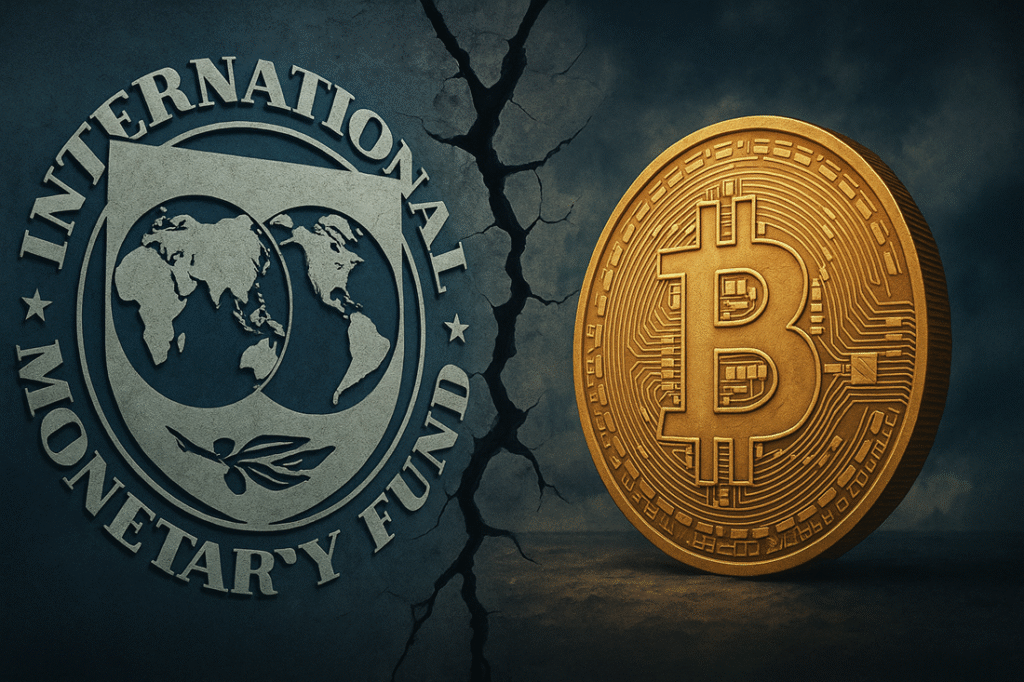In a rapidly evolving financial landscape, Pakistan’s recent announcement to integrate Bitcoin mining into its energy sector introduces both opportunities and challenges. This intriguing development comes amidst rigorous negotiations with the International Monetary Fund (IMF), as the nation navigates its complex financial commitments. Let’s delve deeper into this initiative and the potential implications for Pakistan’s economy and global Bitcoin adoption.
Pakistan’s Bitcoin Mining Ambitions: Opportunities and Challenges Amidst IMF Concerns
Pakistan’s plan to funnel 2,000 megawatts of surplus electricity into Bitcoin mining and AI data centers has drawn significant attention from global financial institutions, particularly the IMF. This bold move comes at a critical juncture, with Pakistan under scrutiny due to its extensive financial commitments and reliance on international lending.
IMF’s Stance and Concerns
The IMF has requested further clarification from Pakistan on this new energy allocation strategy, coinciding with negotiations surrounding the 2025/26 budget. In the wake of receiving a substantial disbursement under the $7 billion Extended Fund Facility, Pakistan’s economic stability is heavily reliant on continued external financing. According to Fitch Ratings, Pakistan’s external-debt maturities for the upcoming fiscal year exceed $22 billion, highlighting the gravity of the situation.
An insider involved in the IMF talks noted that the mining announcement has added complexity to negotiations, potentially leading to more stringent discussions. The IMF’s concerns center around the strategic implications of diverting energy for cryptocurrency mining, amidst an economy reliant on multilateral funding.
Factors Hindering Nation-State Bitcoin Mining
Daniel Batten, a climate tech investor from New Zealand, suggests that Pakistan’s Bitcoin aspirations could be hindered by the institutional pressures from the IMF. Citing the Fund’s historical reluctance towards Bitcoin adoption, Batten outlines five primary concerns: disruption of remittance costs, seigniorage advantages, foreign-exchange reserves, reliance on multilateral lending, and the potential for new financial infrastructures that bypass established capital controls.
Batten references similar situations in other nations, such as the Central African Republic, Argentina, and El Salvador, where IMF interventions curtailed or adjusted their cryptocurrency strategies. Given Pakistan’s economic vulnerabilities, he predicts a similar outcome if Pakistan proceeds with its Bitcoin mining initiative.
Strategic and Economic Implications
Batten argues that the IMF is likely to leverage Pakistan’s financial dependencies to enforce policy reversals. The use of communications campaigns highlighting supposed drawbacks, like “energy shortages” and “high electricity costs,” is expected as a tactic to discourage Bitcoin mining.
Highlighting Pakistan’s fiscal challenges, Batten points to the looming debt repayments amounting to $12.7 billion in the fiscal year 2025. Without IMF’s support, the nation’s foreign-exchange reserves could dramatically decline, exacerbating the risk of a balance-of-payments crisis similar to January 2023, when reserves fell sharply, impacting currency stability.
Conclusion: Navigating the Cryptocurrency Frontier
Batten concludes with a stark reminder that innovation will often encounter resistance. For nations like Pakistan eager to explore Bitcoin, the path forward requires strategic planning, either by securing alternative financial backing or by adopting tactics similar to Bhutan or the United States, which maintain greater financial autonomy from institutions like the IMF.
At present, Bitcoin continues to capture global interest, trading at substantial levels despite ongoing debates over its role in national economies.
What is the IMF’s main concern with Pakistan’s Bitcoin mining plan?
The IMF’s primary concern is the potential impact on Pakistan’s existing financial obligations and its reliance on multilateral funding. The fear is that Bitcoin mining could disrupt traditional financial structures and complicate ongoing financial negotiations.
How have other nations fared with similar Bitcoin integration attempts?
Nations like the Central African Republic, Argentina, and El Salvador have faced IMF pushback, leading to stalled or modified Bitcoin adoption plans. These precedents suggest that countries heavily reliant on international funding may struggle to advance Bitcoin-centric economic policies.
Can Bitcoin mining positively impact Pakistan’s economy?
Bitcoin mining can potentially lead to economic advantages by monetizing excess energy supply and fostering self-reliant financial systems. However, these benefits would need to be weighed against geopolitical and financial factors, particularly in a country facing significant economic challenges.
Is there a precedent for successful national Bitcoin adoption?
Yes, Bhutan and the United States are examples of countries with successful Bitcoin integration strategies. Bhutan’s strategy involved leveraging its hydropower for mining, while the US benefits from its diversified economy and financial systems, allowing for greater independent currency management.

